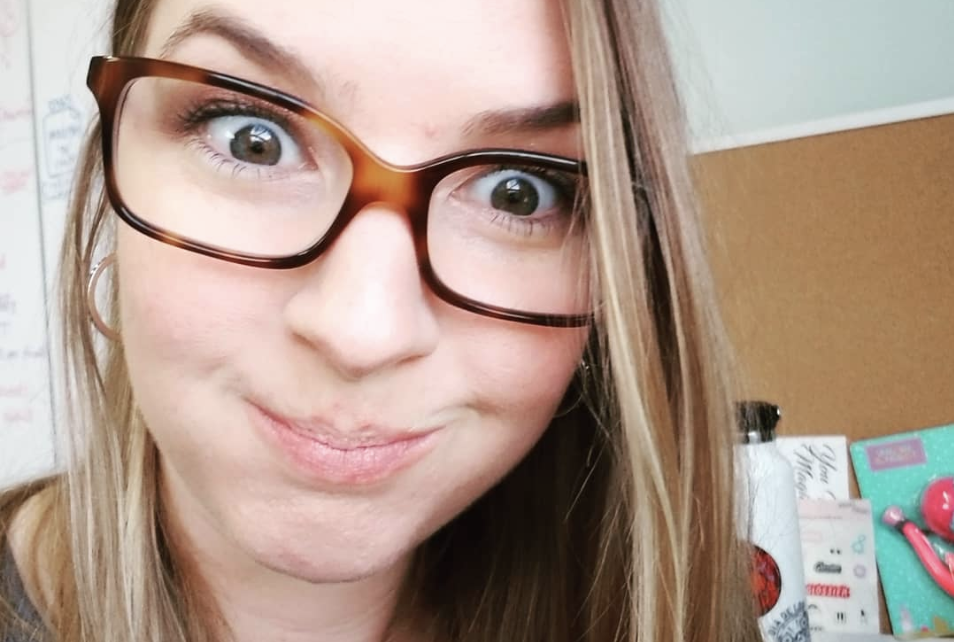There was a period of my life when I hated myself.
Looking at myself in the mirror conjured 36 negative thoughts at first sight. Seeing myself in pictures, I saw 18 flaws just from my shoulders to the top of my head.
It wasn’t only physical—I hated my mind, my fears, my feelings, and my thoughts. My head was filled with critiques and judgments, like being constantly picked on by the meanest, toughest school bully, but without an escape on evenings and weekends.
Ah, self-drudgery. A place we don’t talk about in a sincere way very often, and a place we don’t often believe we can get out of—as if it is our challenge to bear in this life.
We live in a moment when the trendy phrases are “self-care” and “self-love,” but is anyone really feeling more secure or happier alone? Some of our attempts at self-care can actually fuel our own disgust if not done with sincerity and integrity.
Enter a new idea: learning to be your own friend.
Being your own friend is more than treating yourself to indulgences or giving yourself mental pep talks. When we are friend with ourselves, we can enjoy no-plan Friday nights and no-makeup Saturdays. It means we feel comfortable staying home without binging shows or pints of ice cream, yet we also feel comfortable going out when we want to.
Because we like ourselves. We like our company.
It means we spend less time justifying our decisions, because we have more confidence in what we want. We don’t need to overbook our calendars with social engagements or work events to make us feel important.
And, it means we don’t need to constantly reassure ourselves with positive self-talk. We don’t rely on other people for validation. We don’t people-please our way into relationships.
A couple years ago, I started a journey to get to know myself, hoping I could leave the bullying behind.
Here are a few highlights that can maybe act as a shortcut to finding MF (maximum friendship):
Choose to invest the time.
When we are looking for friends, we go out. When we are looking for a romantic partner, we go on dates. If we’re reconnecting with a family member far away, we engage in higher quality conversation.
We know it takes time to get to know another person, and we choose to invest the time. We go out, we try new things, and we share favorite spots. We open up a part of ourselves to be known.
What if we chose to invest time in ourselves this way?
Take yourself to the movie you’ve been wanting to see. Stop for dinner at a place you’ve always wanted to try. Learn your favorite spot to watch the sunset. Make time to find or pursue an eccentric hobby. Get outside without your devices. Listen to your own thoughts while you do chores or sit in your favorite red chair for 10 minutes just because it’s your favorite chair.
To learn ourselves, we must choose to spend time with ourselves, to listen to our thoughts, and to pay attention. When we treat ourselves with quality, rather than carelessness, we signal to ourselves that we are (quality, that is).
Watch your tongue and ditch the lies.
What we say to ourselves, and about ourselves, matters.
Imagine these three types of friends: the friend who follows you around all day saying negative and critical things to you; the friend who constantly tells you lies and justifies why they are okay to tell; the friend with the positive outlook, but peppy to the point of delusional.
Bleh. We know none of these make for healthy, awesome friendships. We probably wouldn’t keep these three around.
In genuine friendships, we encourage our friends. We give them the benefit of the doubt. We are honest with our friends. We see past their quirks and into their goodness. We share positive and negative emotions and experiences with them, and support each other through them. Let’s treat ourselves the same.
Stop waiting for others’ acceptance.
When I started spending more time alone, I realized how much I had learned to rely on outside validation. Sitting on my comfy black couch alone after work, however, I couldn’t hide my thoughts or personality in agreeable conversation, jokes, or people-pleasing. Cutting out social media, I had fewer hits of instant gratification or validation. With these crutches out from under me, I learned others’ acceptance is not a strong foundation for self.
It’s just not.
No one can like us into liking ourselves. There aren’t enough compliments, social invites, or digital reassurances someone can provide to change our brains if we don’t believe the words ourselves.
Even if it were possible, we couldn’t depend on them to stand ready by our side 24 hours to provide a confidence refill when we’ve crashed at 7:30 a.m. Wednesday morning. That’s asking a lot.
We live in our bodies. We occupy our brains. We are the best candidates to know and befriend ourselves. We are responsible to feel good in our own skin in and of ourselves.
Avoid avoidance and shut down distraction.
On our journey to know ourselves, we will at some point have to face…the hard things.
Our quirks that make us go “ew.” The mistakes we think are inexcusable. The thoughts we know aren’t healthy, but haven’t yet upgraded.
It can be uncomfortable, and it takes work. There will be hard moments and hard days when we face the things about ourselves that we don’t like.
It could be a freckle. A crooked eyebrow hair. The memory of a statement you made during your 1 p.m. meeting earlier that felt awkward. The unhealthy thoughts you have about yourself.
Our demons don’t go away until we face them. No excuses. No avoidance. No distraction.
Like walking up to the boogeyman you’ve avoided in the closet for months, staring him straight in the eyes to say, “I see you. You scare me. But I’m ready to acknowledge you’re in my bedroom closet.”
It may sound more like this in real life: “I said something stupid. I always freeze around Jenny. I did it again today, but that moment is over and I can try again next time.”
The freckle may still exist, the eyebrow hair may never lay flush, and we will probably still fumble our words at times…but our mental conversation about these things can change.
See the thing. Hear your judgment. Experience the emotional reaction. Then see more. Step back and see the bigger picture. When we face our demons, we begin to transform our relationships with ourselves.
And we don’t have to be afraid of them anymore.
Decide you won’t accept bullying anymore.
There’s no virtue in the self-hatred cycle. Hating ourselves isn’t humility—it’s bullying.
With so many beautiful, fun, interesting, important things to do in this world, we don’t have to waste another minute in the self-hatred vortex. We can decide we won’t accept our own bullying anymore.
At some point, we must accept that it is our responsibility to cultivate our own friendship and reject our bullying. No one can do that for us.
Understand that it will take time and it will take work. We won’t always get it right, and we won’t immediately become BFFs with ourselves.
But, with a little patience, a little mindfulness, and a little grace, we can learn to see our strengths and our progress, rather than our mistakes and flaws. We will enjoy our decisions and accomplishments, rather than comparing to another’s. We can feel whole and enjoy exactly who we are.
Ah, internal peace. That feels good.












Read 22 comments and reply